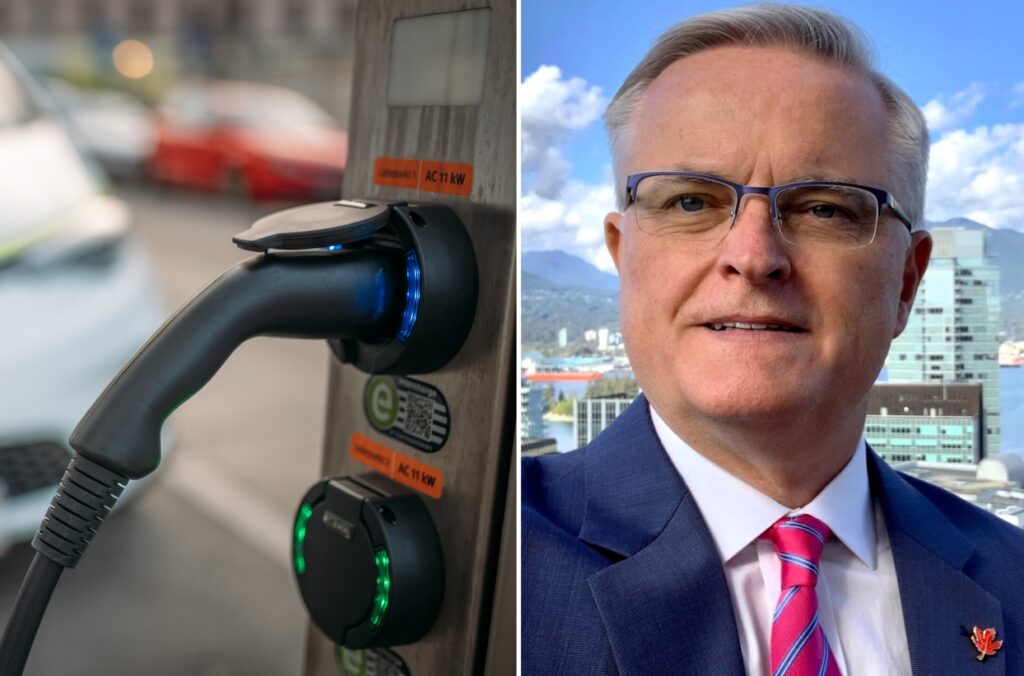BONN, GERMANY – Each day at the international climate talks, dozens of side events take place on a wide range of topics: from phasing out coal to the role of music in the climate action movement.
Those looking for the particular thrill of learning about carbon capture and storage (CCS) technology have been spoilt for choice. All thanks to an industry-sponsored programme run by a business lobby group tucked away at the very back of the exhibition centre.
There, four events on CCS were held in the space of just three days. The reason industry groups are so keen? Because the technology provides “a clear way forward without the need for a rapid abandonment of the world’s fossil resources”, according to the group’s brochure.
While the idea is nothing new, the scale of industry promotion of the technology seems to have ramped up. Following years of discussions about CCS and little progress, the industry is being accused by some at COP23 of using the technology as a “shield” and “an excuse” to delay action while continuing to profit from burning fossil fuels.
According to the Intergovernmental Panel on Climate Change (IPCC), projections to reach the Paris Agreement target of limiting global temperature rise to two degrees above pre-industrial levels requires CCS deployment combined with bioenergy.
It is also accepted that oil and gas companies have the geological and business expertise to deploy CCS on a large scale but today the technology is still widely considered to be at an experimental stage.
Yet, at the climate talks in Bonn, the oil and gas industry was keen to push a message that it is still committed to “making CCS fly” —at least in the theory.
A ‘Shield’ for Oil and Gas
Among the big players taking part in the conversation is the International Emissions Trading Association (IETA), a business organisation which aims “to build international policy and market frameworks for reducing greenhouse gases at lowest cost”.
Throughout the talks, IETA hosted four different events on the deployment of CCS including giving a platform to IPIECA, the global oil and gas industry association for environmental and social issues, to present its case.
But frustrations among civil society groups pushing for more ambitious action is growing.
Chris Littlecott, from think tank E3G, told DeSmog UK the oil and gas industry’s “rhetorical engagement” was not good enough and that CCS’ future impact was being used as “an excuse” to delay greater efforts to deploy the technology while continuing to profit from burning cheaper fossil fuels.
“Across the fossil fuel industry, companies continue to use the future idea of CCS as a shield for continued investment in new fossil fuels. In a sufficiently slow timetable they can be making a lot of money with business as usual,” he added.
Guy Shrubsole, campaigner at Friends of the Earth UK, described the oil and gas industry’s efforts to develop CCS as real as “a unicorn”, adding that civil society was “running out of patience” as the industry “has been dragging their feet for a long time”.
CCS as a Lifeline for Big Oil
At a time when the oil and gas industry is under growing pressure from the rapidly collapsing price of renewable energy, events taking place at the climate talks show fossil fuel companies continue to see CCS as a lifeline.
IETA, whose members include a host of fossil fuel companies including BP, Chevron, Shell, Rio Tinto, Statoil and Total, hosted the events in its “business hub” at the back of the exhibition area of the conference centre.
Thanks to a partnership with the UNFCCC, the UN body which organises the climate talks, IETA was able to bring a delegation of 73-strong business representatives to the talks.
This includes Anthony Andrews, the environmental and social policy advisor for BP, David Hone, chief climate change adviser at Shell, Arthur Lee, senior climate change adviser for Chevron and Giovanni Milani, Eni’s environment and safety director.
In an event on CCS organised by International Petroleum Industry Environmental Conservation Association, universally known as IPIECA, big names from the oil and gas sector, including Hone, Lee, Liz Rogers from BP, and Dominique Copin from Total, made the case for CCS as the solution for the industry to play a role in a low carbon economy.
Jim Herbertson, IPIECA’s lead on climate and energy, said the transition will play out “across the course of the century” asserting that “there is still a role for oil and gas”.
And Hone agreed: “We are likely to continue to have large emissions in the economy that will need CCS”.
Copin recognised that the oil and gas industry “failed” to scale-up CCS but added that despite the oil majors’ “healthy” financial situation, it was down to government to step in and support the big polluters transform their operations.
“CCS is needed not only for the future of the oil and gas industry but also for the rest of society,” he said, before quickly adding: “It is for society first.”
“But we will never make it if we don’t have strong support from our governments. It is outside the capacity of our companies although they are quite big and healthy,” he said.
Although E3G’s Littlecott said he was sympathetic to the industry’s call for national policy to substantiate investment, he accused companies of shifting the focus onto governments “as part of their efforts to delay the deployment of the technology”.
“They know that they need to move but they don’t recognise that they are the people who need to take the first step by putting down investments from their own pockets,” he said.
Shrubsole added that while companies are “relying on taxpayers and government largesse”, the deadline for real progress to be made on the technology is “extremely pressing”.
CCS in the UK
CCS technology does however have some backing from governments.
The UK government for instance pledged £100m for Carbon Capture, Usage and Storage (CCUS), a technology which also seeks to recycle the captured CO2, as part of last month’s Clean Growth Strategy.
Although the pledge falls short of the previous £1bn grant the UK government had earmarked to develop CCS technology before scrapping it in 2015, the announcement shows that governments are ready to back companies which have something to offer.
And the UK is likely to continue being the stage for further analysis on the feasibility of developing CCS at scale. In Bonn, Copin revealed that the Oil and Gas Climate Initiative, a consortium of 10 oil majors which produced around 20 per cent of the world’s oil and gas last year, were currently focusing their CCS work in the UK.
Unlike transitioning from fossil fuels to renewables as a way to cut emissions from the energy sector, CCS is seen as one of the few options so far to decarbonise certain heavy industries such as cement, steel, fertiliser and the chemical sectors and could also be used for gas plants. Many experts argue this is where the focus of developing CCS should be placed instead – as a tool to make industry cleaner, rather than a shield used to perpetuate society’s fossil fuel dependence.
Photo: HKuhse-Bonn via Wikimedia Commons | CC4.0
Subscribe to our newsletter
Stay up to date with DeSmog news and alerts







